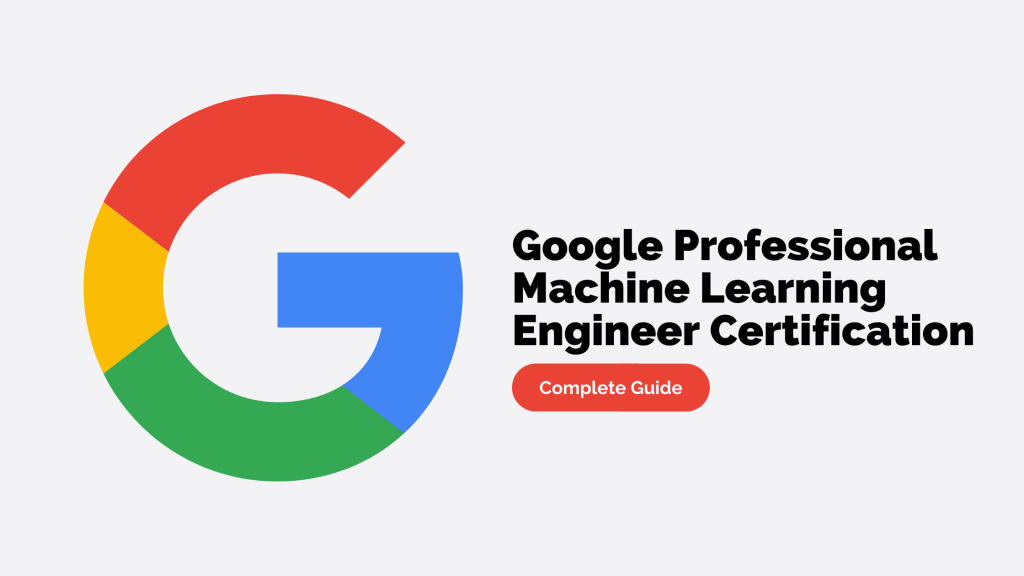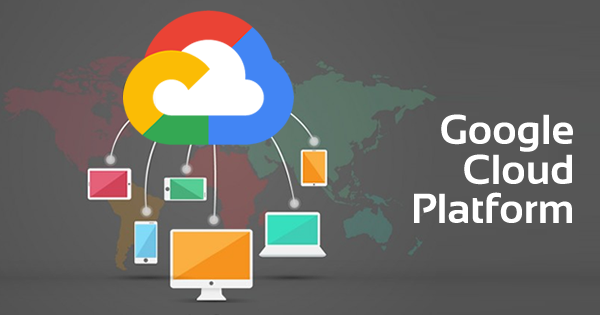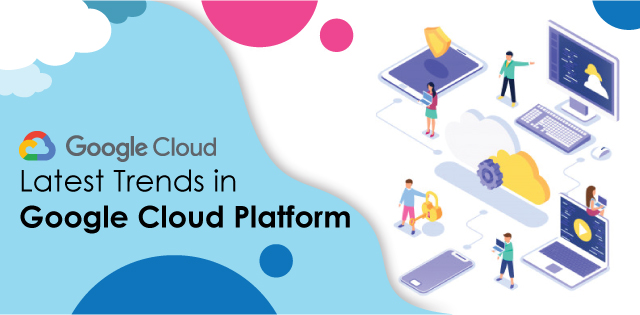In this topic, we are going to guide you through the complete process of Google Cloud Certified Professional Machine Learning Engineer Certification from where you can opt for the courses, what topics are going to be covered in this certification, and how you can prepare for this certification.
Let’s dive in:
Google Cloud Certified Professional Machine Learning Engineer Certification
Professional machine learning engineer is this certification provided by Google Cloud in the field of machine learning. According to the Google Cloud, a professional machine learning engineer always helps to design, build, and productionize the machine learning models to solve various business challenges using Google Cloud air technologies and all the knowledge of the machine learning models.
Google Cloud Professional Machine Learning Engineer exam help you to assess the following skills:
- Frame machine learning problems
- Architecture machine learning solutions
- Prepare and process data
- Developing machine learning models
- Automate and orchestrate machine learning pipelines
- Monitoring, optimizing, and maintaining machine learning solutions.
To give this exam Google recommends you need to have at least 3 years of experience in the field of machine learning so you can have a proper understanding while preparing for the exam.
Career for AI and ML in Google
Most of the people working in Google in Machine Learning and AI aren’t truly developers but most of them are Research Scientists. This means they hold a PhD degree and have a considerable amount of research experience. Many branches of Google such as Google DeepMind have a minimum education qualification requirement of PhD.
Talking about developers, Google’s software engineers/developers/programmers work in various departments and fields. So, if you want to join just as a developer then its way is the same as any other programmer position.
It’s no surprise that the Artificial intelligence talent market is white-hot at present. In fact, Gartner maintains that the business value of AI will stand at $3.9 trillion in 2022., while IDC estimates that the worldwide spending on cognitive and artificial intelligence systems will reach $77.6 billion by 2022.
Career paths for machine learning engineers are
- Machine learning engineer
- Data scientist
- NLP scientist
- AI/ML developer
- And many more
Organization working with google AI and ML technology are as follows.
- Bright star
- Geotab
- Blazeclan
- Therap and more
Portions/Syllabus for the Exam
Section 1: ML Problem Framing
1.1 Translate business challenge into ML use case. Considerations include:
- Defining business problems
- Identifying nonML solutions
- Defining output use
- Managing incorrect results
- Identifying data sources
1.2 Define ML problem. Considerations include:
- Defining problem type (classification, regression, clustering, etc.)
- Defining outcome of model predictions
- Defining the input (features) and predicted output format
1.3 Define business success criteria. Considerations include:
- Success metrics
- Key results
- Determination of when a model is deemed unsuccessful
1.4 Identify risks to feasibility and implementation of ML solution. Considerations include:
- Assessing and communicating business impact
- Assessing ML solution readiness
- Assessing data readiness
- Aligning with Google AI principles and practices (e.g. different biases)
Section 2: ML Solution Architecture
2.1 Design reliable, scalable, highly available ML solutions. Considerations include:
- Optimizing data use and storage
- Data connections
- Automation of data preparation and model training/deployment
- SDLC best practices
2.2 Choose appropriate Google Cloud software components. Considerations include:
- A variety of component types – data collection; data management
- Exploration/analysis
- Feature engineering
- Logging/management
- Automation
- Monitoring
- Serving
2.3 Choose appropriate Google Cloud hardware components. Considerations include:
- Selection of quotas and compute/accelerators with components
2.4 Design architecture that complies with regulatory and security concerns. Considerations include:
- Building secure ML systems
- Privacy implications of data usage
- Identifying potential regulatory issues
Section 3: Data Preparation and Processing
3.1 Data ingestion. Considerations include:
- Ingestion of various file types (e.g. Csv, json, img, parquet or databases, Hadoop/Spark)
- Database migration
- Streaming data (e.g. from IoT devices)
3.2 Data exploration (EDA). Considerations include:
- Visualization
- Statistical fundamentals at scale
- Evaluation of data quality and feasibility
3.3 Design data pipelines. Considerations include:
- Batching and streaming data pipelines at scale
- Data privacy and compliance
- Monitoring/changing deployed pipelines
3.4 Build data pipelines. Considerations include:
- Data validation
- Handling missing data
- Handling outliers
- Managing large samples (TFRecords)
- Transformations (TensorFlow Transform)
3.5 Feature engineering. Considerations include:
- Data leakage and augmentation
- Encoding structured data types
- Feature selection
- Class imbalance
- Feature crosses
Section 4: ML Model Development
4.1 Build a model. Considerations include:
- Choice of framework and model
- Modeling techniques given interpretability requirements
- Transfer learning
- Model generalization
- Overfitting
4.2 Train a model. Considerations include:
- Productionizing
- Training a model as a job in different environments
- Tracking metrics during training
- Retraining/redeployment evaluation
4.3 Test a model. Considerations include:
- Unit tests for model training and serving
- Model performance against baselines, simpler models, and across the time dimension
- Model explainability on Cloud AI Platform
4.4 Scale model training and serving. Considerations include:
- Distributed training
- Hardware accelerators
- Scalable model analysis (e.g. Cloud Storage output files, Dataflow, BigQuery, Google Data Studio)
Section 5: ML Pipeline Automation & Orchestration
5.1 Design pipeline. Considerations include:
- Identification of components, parameters, triggers, and compute needs
- Orchestration framework
- Hybrid or multi-cloud strategies
5.2 Implement training pipeline. Considerations include:
- Decoupling components with Cloud Build
- Constructing and testing of parameterized pipeline definition in SDK
- Tuning compute performance
- Performing data validation
- Storing data and generated artifacts
5.3 Implement serving pipeline. Considerations include:
- Model binary options
- Google Cloud serving options
- Testing for target performance
- Setup of trigger and pipeline schedule
5.4 Track and audit metadata. Considerations include:
- Organization and tracking experiments and pipeline runs
- Hooking into model and dataset versioning
- Model/dataset lineage
5.5 Use CI/CD to test and deploy models. Considerations include:
- Hooking models into existing CI/CD deployment system
- A/B and canary testing
Section 6: ML Solution Monitoring, Optimization, and Maintenance
6.1 Monitor ML solutions. Considerations include:
- Performance and business quality of ML model predictions
- Logging strategies
- Establishing continuous evaluation metrics
6.2 Troubleshoot ML solutions. Considerations include:
- Permission issues (IAM)
- Common training and serving errors (TensorFlow)
- ML system failure and biases
6.3 Tune performance of ML solutions for training & serving in production. Considerations include:
- Optimization and simplification of input pipeline for training
- Simplification techniques
- Identification of appropriate retraining policy
Learning Path : Google Cloud Certified Professional Machine Learning Engineer Certification
Google itself has a learning path defined for machine learning courses in an order so that you can understand machine learning easily and can prepare for the Google Cloud Professional machine learning engineer certification simultaneously. Based on the portions are the syllabus present for the certification you can opt for the courses all training that is available in machine learning path buy Google so that you can prepare for the certification exam.
Courses for Google Cloud Certified Professional Machine Learning Engineer Certification
There are various places where you can check for the cost of Google Cloud Professional machine learning engineer certification. Most of them cover all the portions that are required for this certification and provide hands-on experience for this. Google itself provides a crash course available for machine learning which will help you to understand the basics of machine learning with the available service in the Google Cloud the URL for the crash course is pasted below. there are other places where you can check for certification courses like Udemy and YouTube for free courses.
Machine Learning Crash course by Google: – https://developers.google.com/machine-learning/crash-course
Preparing for Google Cloud Professional Machine Learning Engineer Certification
There are different ways to prepare for this exam. Google suggested some of the steps to be performed in order before the exam so that you can have complete preparation for the certification.
The steps suggested by Google are as follows:
- Get real-world experience: To have real-world experience on machine learning projects so that you can have a better understanding of machine learning technology and terminologies.
- Understand what is on the exam: what topics will be on the exam so that you can study easily we have already covered this part in the previous section.
- Review the sample questions: Google already has a place where they have posted a sample question that comes according to an exam you can have a look at that sample questions to prepare yourself and solve some of the model questions or mock exams.
- Round out your skills with training: It’s better to practice all the services that are provided by Google Cloud for machine learning to have a better hands-on experience and understanding.
- Schedule an exam: After you have completed all the above steps you can now schedule an exam according to your availability and your readiness
Details Regarding the Exam
- Format: – A total of 60 questions and each question are multiple choice.
- Examination method: – onsite center or online exam.
- Time: – 120 minutes
- Cost: – 200 U.S. dollars
- Language available: – English
- Certification Validity: – 2 years
- Schedule an exam for Google Cloud Certified Professional Machine Learning Engineer Certification: https://cloud.google.com/certification/machine-learning-engineer
FAQs
Q1. Does Whizlabs have a course for Google Cloud Certified Professional Machine Learning Engineer Certification?
Ans. Yes, Whizlabs has the course for Google Cloud Certified Professional Machine Learning Engineer Certification.
Q2. Where can I find the Google Learning path?
Ans. Here is the link you can find more about Google Learning Path
https://cloud.google.com/training/machinelearning-ai
Q3. Do google have any criteria for the exam?
Ans. Google does say that to examinee must be at least of age 18.
Q4. When can we give the exam for certification renewal?
Ans. You need to start 60 prior for the expiration.
Q5. When can we retake the exam if we fail?
Ans. If you fail the Exam, you may retake the Exam, but you must wait at least fourteen (14) days before doing so. If you fail the Exam a second time, you may retake the Exam, but must wait at least sixty (60) days before doing so. If you fail the Exam a third time, you may retake the Exam, but you must wait at least one (1) year before doing so.
Q6. Is Google Leaning Path is free?
Ans. Google learning path provides you 30 days free trail.
Q7. Do we receive any vouchers after clearing the exam?
Ans. No we do not receive any vouchers after clearing an exam.
- Top 20 Questions To Prepare For Certified Kubernetes Administrator Exam - August 16, 2024
- 10 AWS Services to Master for the AWS Developer Associate Exam - August 14, 2024
- Exam Tips for AWS Machine Learning Specialty Certification - August 7, 2024
- Best 15+ AWS Developer Associate hands-on labs in 2024 - July 24, 2024
- Containers vs Virtual Machines: Differences You Should Know - June 24, 2024
- Databricks Launched World’s Most Capable Large Language Model (LLM) - April 26, 2024
- What are the storage options available in Microsoft Azure? - March 14, 2024
- User’s Guide to Getting Started with Google Kubernetes Engine - March 1, 2024



